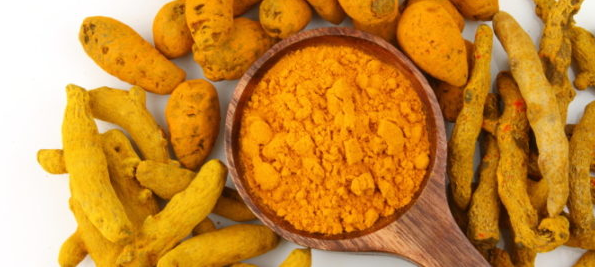Turmeric (Haldi) has been used for thousands of years as a dye, a flavoring, and a medicinal herb. This ancient spice belongs to the ginger family and it contains a component called Curcumin. This component has antimicrobial, antiseptic, antioxidant and anti-inflammatory properties, which is quite useful in Dentistry also.
Benefits of Turmeric for Dental Health:
- Turmeric is a spice commonly used in Indian and Middle Eastern cuisine, known for its bright yellow color and distinctive flavor. In recent years, turmeric has gained attention for its potential health benefits, including its effects on dental health. Here are some of the potential benefits of turmeric for dental health:
- Reducing inflammation: Turmeric contains a compound called curcumin, which has anti-inflammatory properties. Inflammation in the mouth can contribute to gum disease, which can lead to tooth loss. By reducing inflammation, turmeric may help prevent gum disease and other dental problems.
- Fighting bacteria: Turmeric has been shown to have antibacterial properties, which can help prevent the growth of harmful bacteria in the mouth. This can be especially beneficial for preventing cavities and gum disease.
- Whitening teeth: Some studies have suggested that turmeric can help whiten teeth. One study found that a turmeric-based mouthwash was effective at removing surface stains from teeth.
- Soothing oral pain: Turmeric has traditionally been used to relieve pain and inflammation, and it may have similar effects in the mouth. Some people have reported that using turmeric paste or mouthwash can help soothe pain from toothaches or other oral discomfort.
While turmeric may have some potential benefits for dental health, it’s important to note that more research is needed to fully understand its effects. It’s also important to talk to your dentist before using turmeric or any other natural remedies for dental health.
How to use Turmeric for Dental Problems?
Here are some easy to follow ways to use turmeric for dental health:
- Massaging aching teeth with roasted, ground turmeric can help reduce pain and swelling of root canal treatment, tooth removal or dental implant.
- Prepare turmeric water by boiling 5g of turmeric powder, two cloves and two ground leaves of guava in 200g water. Let it cool. Rinsing the mouth with this water can provide instant relief from dental problems.
- Prepare a paste by mixing 1 tsp of turmeric with ½ tsp of salt and ½ tsp of mustard oil. Rub this paste twice daily on gums and teeth for relief from gingivitis and periodontitis.
Remember that turmeric stains the teeth yellow, so it is advisable to follow this routine with a regular toothpaste.
Precautions:
Turmeric as a spice is very safe to use, however, one must be careful with turmeric supplements as it is a concentrated form of curcumin.
Few of the conditions under which one should avoid turmeric supplements are:
-
Turmeric supplements are generally safe for most people when taken in recommended doses, but there are some conditions under which one should avoid or consult a doctor before taking turmeric supplements. Here are a few examples:
- Bleeding Disorders: Turmeric can slow down blood clotting, which could increase the risk of bleeding in people with bleeding disorders. Therefore, people with bleeding disorders such as hemophilia should avoid taking turmeric supplements.
- Pregnancy and Breastfeeding: Pregnant and breastfeeding women should avoid taking turmeric supplements as there is not enough evidence to prove their safety for these groups.
- Gallbladder Problems: Turmeric supplements can worsen gallbladder problems or increase the production of bile, leading to symptoms such as nausea and diarrhea.
- Diabetes: Turmeric supplements can lower blood sugar levels, which can be dangerous for people with diabetes who are already taking medication to lower their blood sugar levels.
- Surgery: Turmeric supplements can increase the risk of bleeding during and after surgery, so it is advisable to stop taking turmeric supplements at least two weeks before any scheduled surgery.
It’s always best to consult with your doctor or healthcare provider before starting any new supplements, especially if you have a medical condition or are taking any medications.

